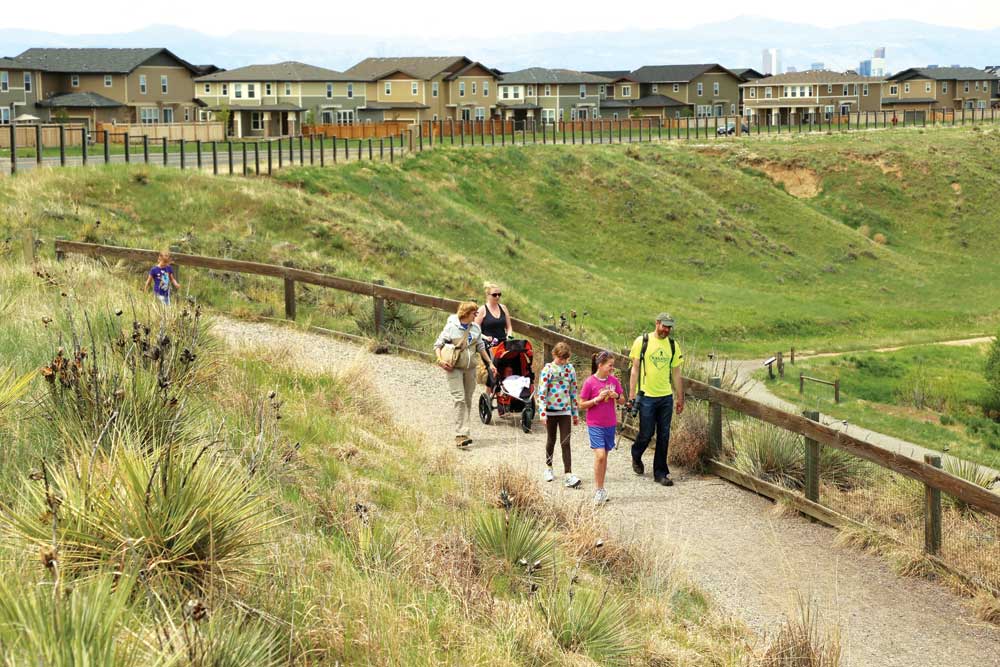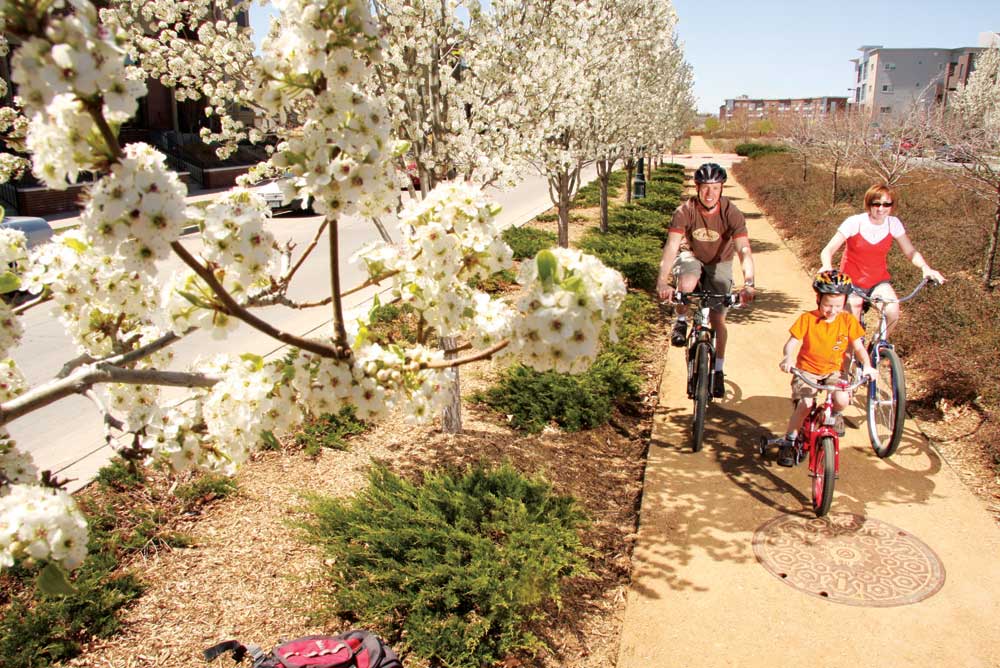
Bluff Lake Center
Just exercise moderately and reduce sitting time
Every year, people resolve to improve their lives starting on January 1—and in 2015 weight loss and exercise was the number one resolution according to a Marist Poll released in December.
A local trainer, Gregg Hoffman, says he sees about a 25 to 30 percent increase in new clients in the first two weeks of January. But studies show that a third of these exercisers will have given up within a month.
If you didn’t carry out your resolution to get more exercise—or if you didn’t even make one—the good news is even small changes in your life can improve your health. Stapleton resident Emily Aronow, a physical therapist at National Jewish Health since 2003, discussed some health studies that point to the value of getting moderate exercise and minimizing sitting time.
A little moderate exercise makes a big difference.
Studies confirm that even a very low level of activity is significantly healthier than no activity. A 2012 study published in PLOS Medicine* found that people who walked from 1 to 74 minutes per week added 1.8 years to their life versus people who were inactive. These gains are apparent regardless of the person’s weight. In this study, overweight people who were minimally active (1 to 74 minutes per week) gained more than three extra years of life versus normal weight people who were completely sedentary.
“The study pooled information from six studies comprising approximately 650,000 people ages 21 to 90,” said Aronow. “Walking 79–140 minutes per week added 2.5 years to people’s lives. More than 150 minutes added 3.4 years; more than 300 minutes added 4.2 years; and 450 minutes added 4.5 years.
“What’s interesting about this study is that the biggest jump is between 0 and 74. Each additional amount produces a gain, but not as much. Also, people got big benefits whether they were overweight or not, and overweight people saw the biggest benefits.”
Aronow suggested ways to increase moderate exercise: “Park farther away from the office and walk. Some people like to use a pedometer because they’re competitive with themselves and they can track their number of steps. Or bike to work.
“We don’t have to go to the gym if we make our daily lives more active.”
Stand more and sit less.
The most surprising new research indicates there is another major component to good health— reducing time spent sitting. Multiple studies are finding that time spent sitting has a negative effect on health that is not completely erased by exercise. Simply standing while watching TV or pacing leisurely while on the phone decreases the risk of cancer, diabetes and heart disease. A study published in BMJ Open** estimated that by decreasing sitting time to three hours per day, the average person adds two years to their life expectancy.
“Scientists are discovering two distinct aspects of being active: one, that exercise is good, and the other that sitting is bad,” Aronow said. “Even going to the gym doesn’t counteract sitting too long. An ‘active couch potato’ who drives to work and sits 10 to 12 hours, then goes to the gym for one hour, does not counteract the negative effects of sitting. A busy mom who chases her kids around but never goes to the gym is better off than someone who plays racquetball and then works at a desk for eight hours. It’s like thinking exercise will counteract the effects of smoking—they are separate problems.”

29th Avenue
Aronow said the research study published in BMJ Open included approximately 166,000 people in a wide age range. Removing other factors like weight and smoking, the study found that participants who reduced their sitting time lived longer. Reducing sitting time from 50 percent of their day to 25 percent of their day added an average of two years to their lives.
Aronow shared ideas for sitting less: “When I’m in the office all day, I split the time in thirds: sitting in a chair, sitting on a fitness ball and standing up at my desk. In this way, I’m able to reduce my sitting time from six hours to two. It can really help to alter your environment. Also, instead of emailing someone down the hall, walk over there.”
She suggested ways to rethink our commuting and TV-watching time: “Make your commute standing on the bus, walking or biking. It’s a significant difference from sitting on the bus or in the car. At home while watching TV, iron or fold laundry, or stand up and do arm exercises—or sit on a fitness ball, which makes you readjust your posture.”
*PLOS Medicine, 2012, “Leisure Time Physical Activity of Moderate to Vigorous Intensity and Mortality: A Large Pooled Cohort Analysis,” multiple authors, plosmedicine.org.
**BMJ Open, 2012, “Sedentary behaviour and life expectancy in the USA: a cause-deleted life table analysis,” Peter T Katzmarzyk and I-Min Lee, http://bmjopen.bmj.com/content/2/4/e000828.full.



This is another great reason why we need a disc golf course in Stapleton. It is a low impact, fun sport that optimizes under utilized areas of our parks. By the time you are done with the course you have walked several miles and are none the wiser that you have actually exercised. If the course is nice it also brings people from outside the community here to enjoy our parks and spend money at our local businesses. With a very low installation and upkeep cost I am surprised this is not a larger topic of conversation.